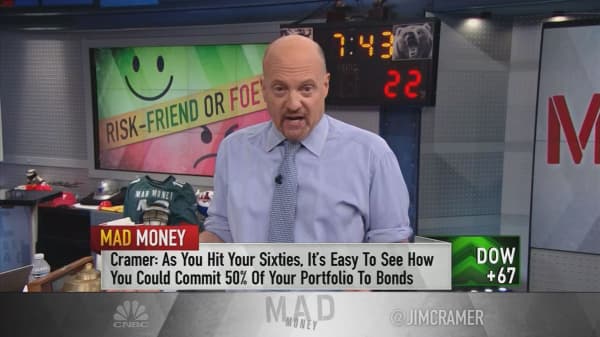In our brains, we all want to trade like George Soros: Find that one niche, stock or unexplored cave of the market that's going to yield pure platinum.
Yet if you talk with Meir Statman, an expert on behavioral finance, you're likely to become more static and less Soros. Statman, a professor at Santa Clara University, is the author of "Finance for Normal People: How Investors and Markets Behave."
Traders, Statman discovered in his research, are "more likely than not to reduce their returns rather than increase them. Abandon hope. The market is like a jungle, and the average investor is going to be killed."
Other than facing the desperation of competing against computers, math geniuses, hedge-fund moguls and institutions, your odds at winning in the market are greatly diminished by another factor: Your own psychology.
"The market is like a jungle and the average investor is going to be killed."
Traders tend to be overconfident and discount what they don't know about the market and individual securities. They see patterns instead of random noise. And they have a hard time admitting their losses and focus too much on gains.
In summarizing the science of behavioral finance, Statman says we're pretty much hard-wired to consistently make these mistakes — and lose money. Since we tend to think of ourselves as better than average on most everything from driving to investing, it clouds our rational judgment. A body of research has found this to be particularly true when it comes to amateur stock traders.
Statman said that average returns of frequent traders "lag those of infrequent traders and the average returns of infrequent traders lag average returns of investors who abstain from trading."
So should investors just say no to stocks? Not at all. We all need to beat inflation and invest for long-term goals like college and retirement. Here's what he suggests:
- Most long-term investors are better off in low-cost index funds. These exchange-traded or mutual funds passively hold stocks, bonds and securities from across the world in ultra-cheap packages. For example, you could own most of the largest U.S. stocks in the Schwab U.S. Broad Market ETF for an annual management expense of 0.03 percent. For most investors, Statman says, index funds make eminent sense.
- Avoid sectors. Even if you favor the cheapest ETFs, you may still be betting on industry segments. These smaller slices of the market fall in and out of favor constantly. It's a "fool's game" trying to time your entry and exit, Statman said.
- Be honest. It's common to hear someone brag that they "made a killing" on a trade or specific stock. What's the whole story? How many bad trades did they make and how much did they lose? It's net returns — after commissions, expenses and taxes — that should be your bottom line. Still want to trade? Then "have somebody you trust do an honest audit of your trading records," Statman suggested.
Knowing the psychology of investing behavior will go a long way to improving your total returns. Don't fixate on the "right" price to buy, hold or sell a security (this is called "anchoring").
It also makes sense to avoid mental shortcuts in explaining why you should trade. Ignore the great "story" about a company or a chart that shows "it's in a buying range."
And don't pretend that market movements are linked to anything specific such as an unrelated news item. When Fed Reserve Chairman Janet Yellen sneezes, it often has no link to future stock prices and dividends. You could be confirming your gut reaction by seeing patterns when there aren't any direct connections. The stock market is not the economy and vice versa.
Lurching toward the other end of the spectrum is also a bad idea — becoming ultra-risk averse and avoiding stocks entirely. Your mattress portfolio will eventually get burned by inflation. Not keeping up with the cost of living is a sure way to fall behind, particularly when you're on a fixed income in your later years.
"Stocks are risky, even if you hold them for the long term. But odds are you'll do better holding stocks than only holding bonds," Statman said.
Is Statman a total buzzkill on channeling your inner Soros? Not entirely. He just wants you to be realistic. Know how much risk you want to take in stocks and bonds and plan accordingly for long-term goals.
"As long as you know you'll sacrifice returns in trading, just don't do too much of it."






